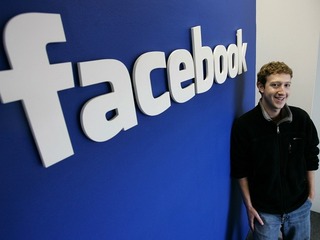Global AI in healthcare market expected to rise to $164B by 2030
The market size for 2023 was $10.31 billion
Read more...
There was a new development in the class action lawsuit against Facebook over its sponsored stories. Last we heard, Facebook had offered a new proposed settlement back in early October, and now word is coming that the social network might finally be seeing an end to the lawsuit soon.
U.S. District Judge Richard Seeborg, who is overseeing the case against Facebook, said that he is considering approving the updated settlement, with a ruling coming “very shortly,” Reuters reported Friday.
In court on Thursday, Facebook attorney Michael Rhodes is quoted as saying that the updated settlement provided meaningful protections. He also said that Seeborg was supposed to ensure a fair settlement, and that it is not his job to write national privacy policy.
"Trust me, I'm not proposing to set grand policy with privacy issues writ large," Seeborg told Rhodes.
Plaintiff attorney Robert Arns stated that the deal was a good balances between the public good and Facebook's ability to be a profitable company.
"We believe we cracked the code so that it's fair," he said.
If Seeborg does decide to give the proposal his preliminary approval, outside groups will still have the ablility to file any objections before a final hearing is set.
Lawsuit background
The initial lawsuit stems over Facebook’s Sponsored Stories, in which users, who “like” a certain brand on the site, are then used to endorse that brand, sometimes without the user’s consent, in some cases without their knowledge.
For example, if a user clicks the “like” button on the McDonald’s page, the user’s name and images can be used in advertisements sent to their Facebook friends. Facebook is paid by McDonalds for the service.
In it’s initial $20 million proposal, Facebook provided no money to class members but had set aside $10 million for organizations involved with Internet privacy and would have allowed plaintiffs in the case to apply for an attorney fee of up to another $10 million.
Seeborg rejected the offer, saying that he had “serious concerns with the provision of the settlement agreement permitting plaintiffs to apply for up to $10 million in attorney fees without objection by Facebook.”
Saying that the attorneys for the plaintiff class may “have bargained away something of value to the class,” the Judge demanded assurances that the amount Facebook was offering “was not merely plucked from thin air.”
With the revised settlement agreement, Facebook users whose likenesses have appeared in Sponsored Stories without permission will be able to receive a cash payment of up to $10 each from a $20 million settlement fund.
That may sound like a lot, but given that there are 125 million people involved in the class action suit, if every one of them cashes in their settlement it would amount to just two cents per user.
The proposal also has a provision that says that “if it is not economically feasible to make any pro rata payment to the Authorized Claimants without exceeding the Net Settlement Fund” all of the money may be given to charity.
In addition, Facebook has also dropped the provision that set aside money for attorney fees, and has altered the proposal so that money will only go to charity if there is any remaining after users' claims, attorney fees and other expenses have been paid first.
“Finally, regardless of the number of claims made or the amount of the attorneys’ fees the Court approves, none of the $20 million will return to Facebook. After payment of all claims, fees, and administrative expenses, any remaining portion of the $20 million will be awarded as cy pres to organizations proposed by the Parties and approved by the Court,” Facebook wrote.
Some of Facebook’s original proposal did remain, specifically the parts that would have allowed users to have more control over their personal information, and would have allowed users under the age of 18 to opt out entirely.
In its new proposal, Facebook added addition parental controls, in which parents will be able to directly have their children opt-out of the Sponsored Stories feature once they confirm their relationship to their child. Parents will then be able to prevent the names and likenesses of their children from appearing in sponsored stories.
Not everyone is happy with the proposed settlement though. Two children's advocacy groups have filed papers with the court opposing the deal, saying that Facebook should instead implement an opt-in requirement with parental consent before it can use a minor's content in any advertisements.
(Image source: https://socialnewsdaily.com)
The market size for 2023 was $10.31 billion
Read more...At Culture, Religion & Tech, take II in Miami on October 29, 2024
Read more...The company will use the funding to broaden the scope of its AI, including new administrative tasks
Read more...
